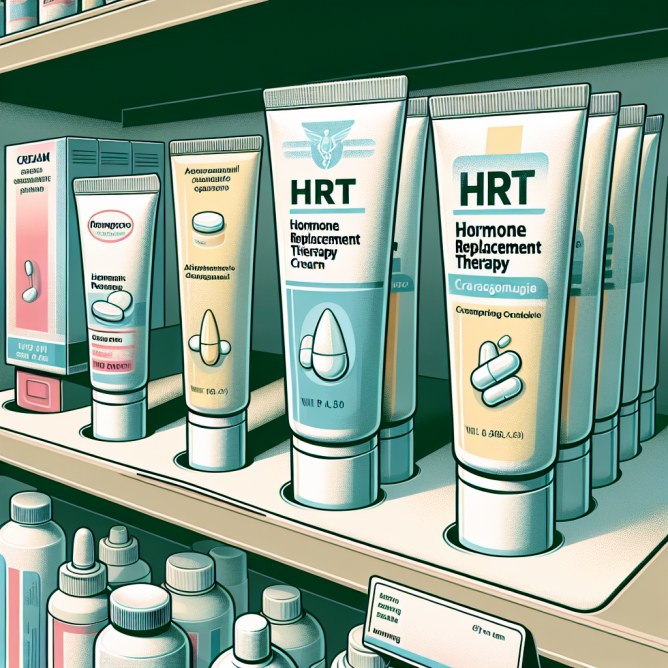HRT Hormone Creams: A Safe and Effective Alternative for Menopausal Women
Introduction
Menopause is a natural phase in a woman’s life, but it can also be a challenging one. The symptoms of menopause, such as hot flashes, night sweats, and vaginal dryness, can significantly impact a woman’s quality of life. Hormone replacement therapy (HRT) has been a popular treatment for menopausal symptoms for decades. However, recent studies have raised concerns about the risks associated with oral HRT, such as an increased risk of breast cancer and blood clots. As a result, many women are now turning to HRT hormone creams as a safer and more effective alternative.
What are HRT Hormone Creams?
HRT hormone creams are topical medications that contain estrogen and progesterone. These creams are applied directly to the skin, where they are absorbed into the bloodstream. HRT hormone creams are available in various forms, including patches, gels, and creams. The creams are typically applied to the skin once a day, and the dosage is tailored to the individual’s needs.

Benefits of HRT Hormone Creams
1. Targeted Treatment
One of the main benefits of HRT hormone creams is that they provide targeted treatment. Unlike oral HRT, which affects the entire body, HRT hormone creams are applied directly to the affected area. This targeted approach reduces the risk of side effects and minimizes the amount of hormone needed to achieve the desired effect.
2. Reduced Risk of Side Effects
Oral HRT has been linked to an increased risk of breast cancer, blood clots, and stroke. These risks are thought to be due to the high doses of hormones that are absorbed into the bloodstream. HRT hormone creams, on the other hand, have a lower risk of side effects because the hormones are absorbed directly into the skin and do not enter the bloodstream in the same way.

3. Improved Symptom Relief
HRT hormone creams have been shown to be effective in relieving menopausal symptoms, such as hot flashes, night sweats, and vaginal dryness. A study published in the Journal of Women’s Health found that women who used HRT hormone creams experienced a significant reduction in hot flashes and night sweats compared to women who did not use HRT.
4. Improved Bone Health
Osteoporosis is a common condition that affects many women during menopause. The loss of estrogen during menopause can lead to a decrease in bone density, which increases the risk of fractures. HRT hormone creams have been shown to improve bone health by increasing bone density and reducing the risk of fractures.
5. Improved Sexual Function
Vaginal dryness is a common symptom of menopause that can significantly impact a woman’s sexual function. HRT hormone creams have been shown to improve vaginal moisture and lubrication, which can improve sexual function and reduce discomfort during sexual activity.
Conclusion
HRT hormone creams are a safe and effective alternative to oral HRT for menopausal women. The targeted treatment, reduced risk of side effects, improved symptom relief, improved bone health, and improved sexual function make HRT hormone creams an attractive option for many women. However, it is essential to consult with a healthcare provider before starting HRT hormone creams to ensure that they are the right treatment for the individual’s needs. By working with a healthcare provider, women can find a safe and effective treatment for their menopausal symptoms that meets their individual needs.




